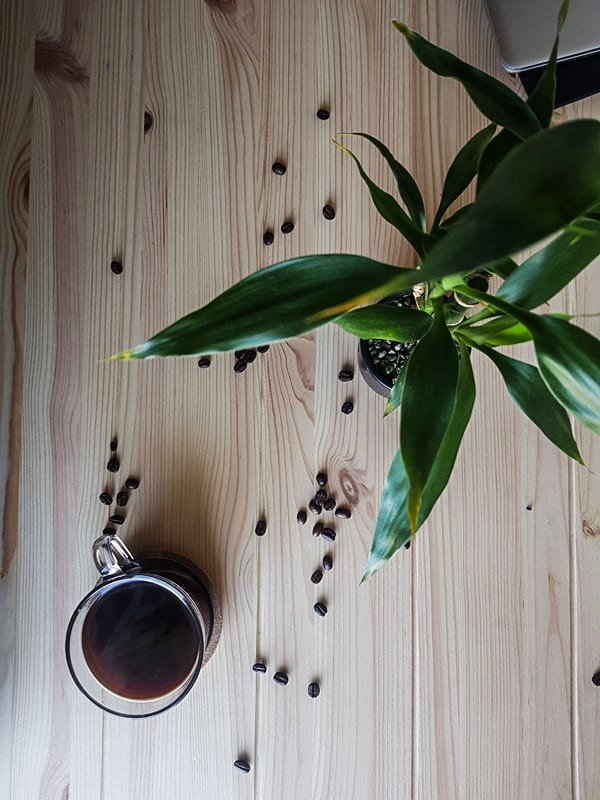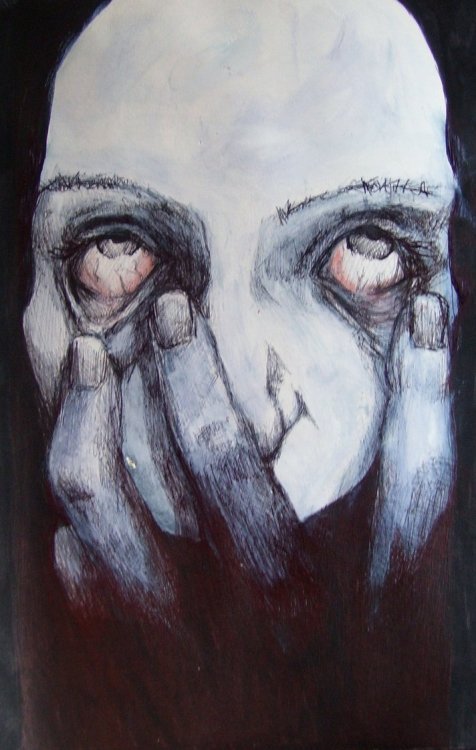
Caffeine is the most 'widely consumed psychoactive' drug in the world. Found in coffee plants, tea plants, kola nuts, cocoa, and guarana, caffiene stimulates the production of dopamine, adrenaline, and adenosine in the brain. One cup of brewed black coffee, for instance, contains around '95mg of caffeine on average'.. This amount of caffeine has a half-life of about six hours and will take around fifteen minutes for your body to feel that buzz after consumption.
I'm not addicted, it does nothing to me... right?
Prior to my three day coffee detox, I was convinced coffee didn't do all that much for me.
'It doesn't do much to me,' I told my friend ironically over a cup of coffee 'I'm not event that addicted, I insisted.'

Source: Giphy
On a typical day I consume somewhere between four and five cups of coffee. This amount peaks during winter, when the cold enters my bones and the warmth of coffee becomes even more seductive.
This amount averages around 400mg of caffeine a day, which is deemed the maximum safe dosage by most health authorities including Mayoclinic and the Beatter Health Channel. For most adults, exceeding 400mg of caffeine a day may result in 'headaches, insomnia, restlessness, anxiousness, and irregular heartbeat'. Although people can suffer adverse reactions to excessive caffeine, it is near impossible to overdose on caffiene. This is because it would take 'around 200mg of caffiene per kg of body weight,' or 142 cups of coffee to overdose on caffeine- which your stomach couldn't physically hold.
So, no. My four cups of Jo a day aren't going to kill me in a hurry. So why try quitting coffee cold turkey? A morning without coffee results in my body shaking. What would a whole three days without caffeine do, I wondered? Nothing too serious... right?
Day 1
I awoke at 6:30am on the first day. After making my bed and downing a glass of water, I caught myself turning the kettle on. My morning routine, after all, is almost second nature nowadays. After stopping myself from making a coffee, I went about running some errands and everything seemed fine for the first few hours.
My body started shaking at around 8:30am, nearly twelve hours since my last caffeine hit. Eventually a headache from hell invaded my head and everything was a haze. I worked sloppily and caved in by lunch. Brewing a weak English Breakfast, I contemplated just how bad this was going to be. The tea did nothing to curve my headache. I hit my pillow that night and slept for a record-breaking eleven hours.
Day 2 & 3
As my alarms chimed a horrific song, I dragged my self out of bed only to hit snooze. It did this for three more hours until I had to finally go to a work meeting. Don't tell my manager but 99% of that meeting went over my head. I sat there sipping my cold water with a throbbing headache the whole time, unable to process anything. When one of my work colleges gave me typical light-hearted banter, I was awfully irritable.
Later that night, I didn't fall asleep until around 2:30am. I guess Insomnia had swept me off my feet.

Source
Day three wasn't so bad. While my headache had lessened, I just felt sad and moped around for most the day. My boss had even cited how terribly I had closed the bar the night before, which certainly didn't lighten the mood. I picked up some decaf coffee in an attempt to gain a placebo effect. It just wasn't the same.
At home I finally filled my iconic Sloth Mug up with liquid gold and relief washed over me. Pinging around the house, I spent the next few hours doing house work at an unparalleled, caffeine-fuelled god-speed.
Fuck giving up coffee again.
A valuable lesson learnt.
I don't recommend giving up coffee. If you enjoy your morning ritual, you do you. However, if you really want to curve your caffeine addiction cold turkey isn't a favourable method. Two popular approaches are reducing your caffeine amounts by 10% a day, or gradually reducing caffeinated coffee in favour of decaf. These methods will help your body's caffeine dependence fade slowly with minimal side effects.
Much like gambling, drug, and gaming addictions, caffeine addictions are certainly a real thing. While there's not much comparison between a morning coffee and a morning line of coke, the chemical impact these substances have on your brain are quiet similar. We live in an age of uppers and downers. People are taking anti-depressants and melatonin chugging down energy drinks on their nine-to-five.
If this horrid coffee detox has taught me one thing, it's that we should take the time to learn what we're putting in our bodies and understand how it impacts our brains.
This post has been upvoted by the Trojan Wall community.
 If you have any questions feel free to ask on our discord server: https://discord.gg/4YXdZVN
If you have any questions feel free to ask on our discord server: https://discord.gg/4YXdZVN
We are a group of authors who support each other in our everyday struggle to get our posts noticed.
Currently we are searching for new members. If you are interested in joining us you can read the guidelines on our posts.
Stay strong, keep steeming.